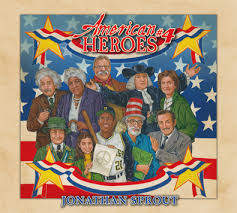Eleanor Roosevelt
Listen to the Recess! Clip
| Author | Rosie Russo |
| Air Date | 10/11/2001 |

Eleanor Roosevelt Transcript
Brief sound clip
The first voice you heard was that of Eleanor Roosevelt, exhorting her audience to “live for the cause of freedom and justice,” followed by a verse from Jonathan Sprout’s musical tribute to this remarkable First Lady from his CD for children, “More American Heroes.” It’s Eleanor Roosevelt’s birthday today. She was born in 1884, to a wealthy and socially prominent New York family. Her father’s brother, her “Uncle Ted” and godfather, was Theodore Roosevelt who would become President of the United States when Eleanor was seventeen and was formally introduced to high society. But Eleanor was hardly the glittering debutante. She was painfully shy and withdrawn, and had been throughout her childhood. Her famously beautiful mother had even nicknamed her “granny” because of her seriousness. Eleanor lost both of her parents before she was ten — her mother to diphtheria, and her father to alcohol. She was then raised by her stern, exacting grandmother who did not want to see her granddaughter descend into a life of dissipation or frivolity. She need hardly to have worried about that, though. By the time she was fourteen, Eleanor had already identified herself with the sober-minded branch of her public-spirited family that had dedicated itself to progressive reform when she wrote: “it must have been meant, it seems to me, that we should leave some mark upon the world and not just live and pass away. For what good can that do to ourselves and others?” According to Russell Freedman, in his biography for young people of Eleanor Roosevelt, one of her aunts had said about her that same year, “Poor little soul, she is very plain. Her mouth and teeth seem to have no future. but the ugly duckling may turn out to be a swan.” And so she did.